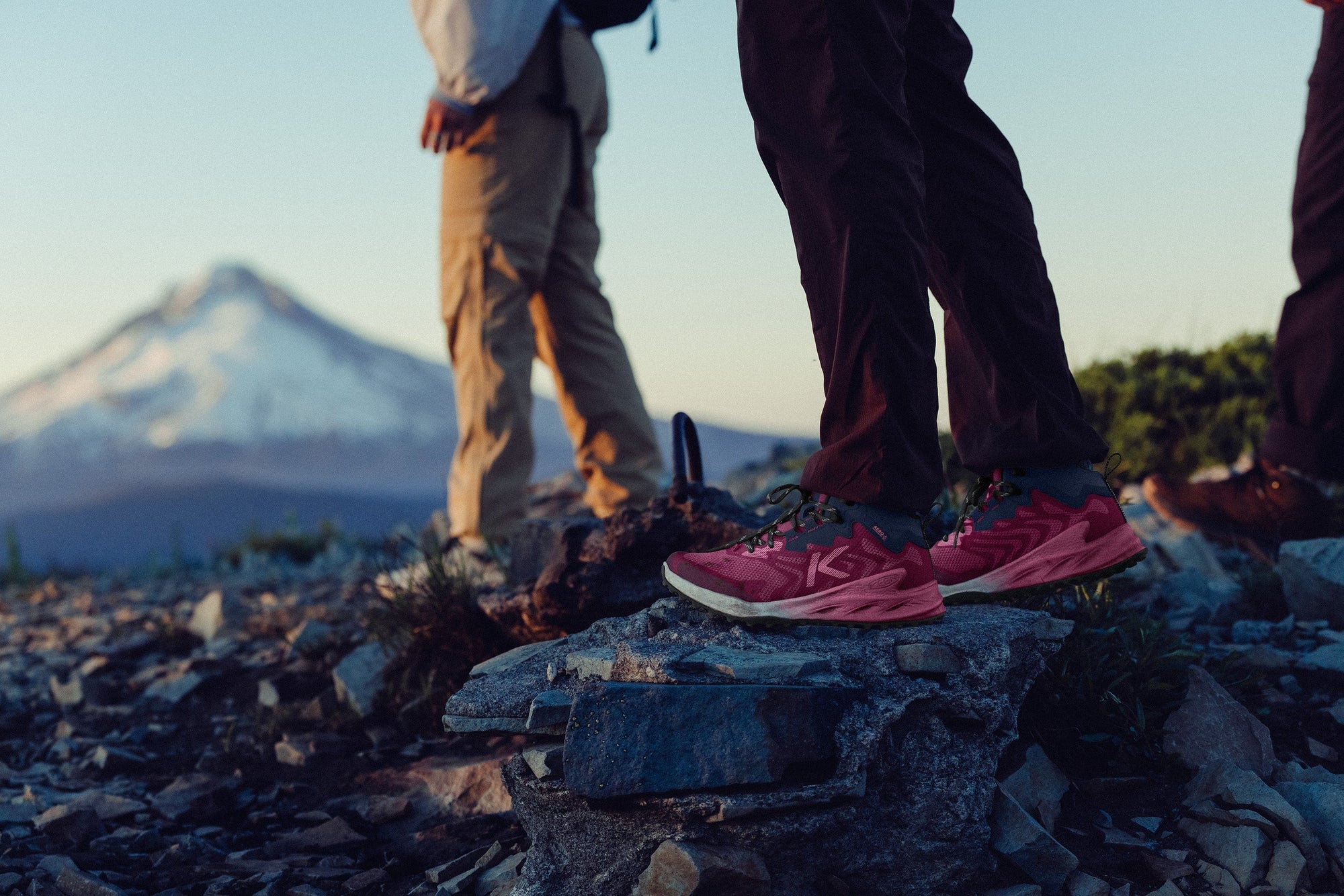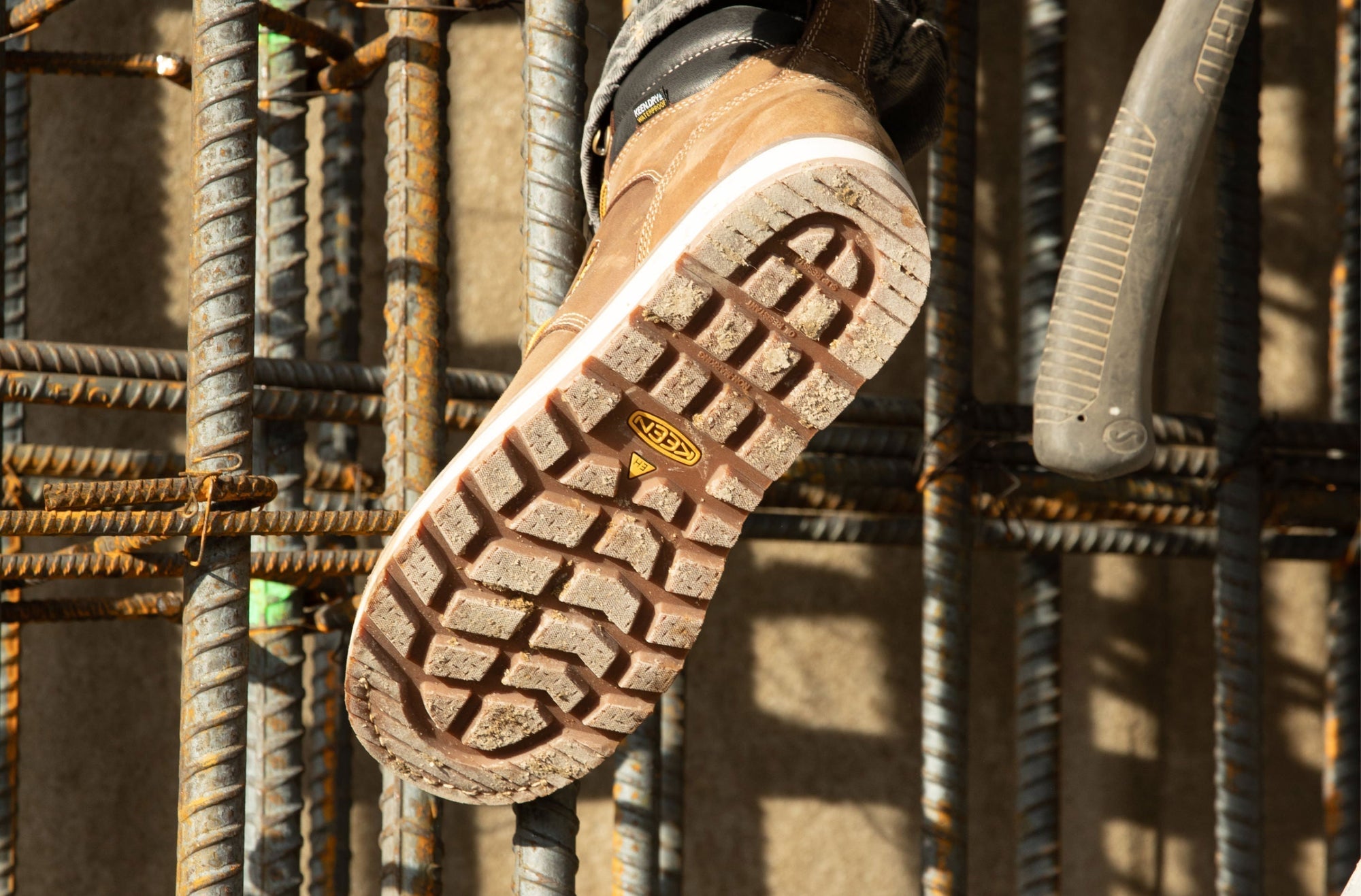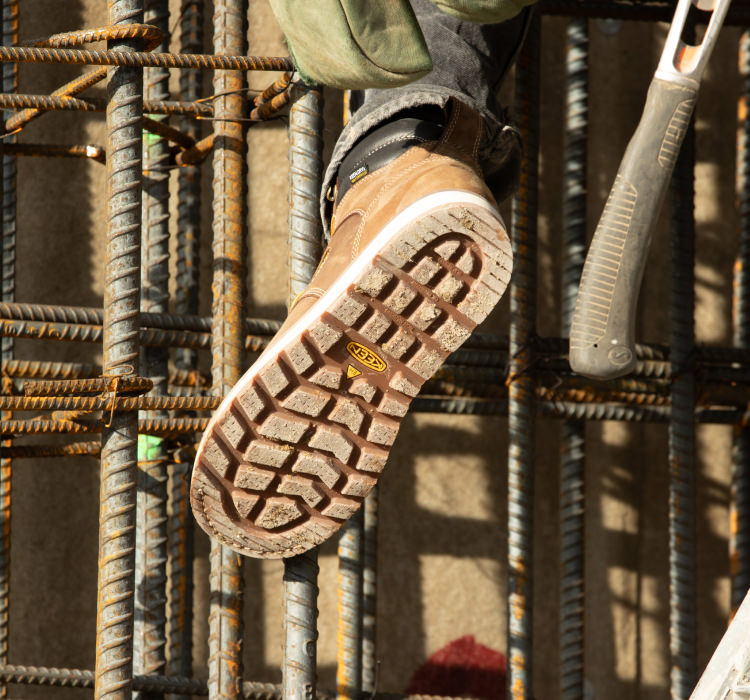Sweaty feet are no surprise in the dog days of summer. But what about when it’s cold out? You can head out for a short hike in frigid weather and still end up with overheated feet.
No one wants to feel sweaty, stinky, and generally gross inside their winter boots. Here are our best tips for preventing wet, yucky feet this winter:
1. Don’t Over-Insulate
Insulation can be a life-saver (literally) in freezing temps. But you can be too insulated in the winter. When our KEENmate Cynthia took up snowshoeing, she thought she’d need a pair of boots with heavy-duty insulation. But her feet run so hot that she found she was most comfortable in a pair of non-insulated hiking boots. Listen to what your body is telling you, and adjust accordingly! It could be that you don’t actually need insulated footwear, just a warm pair of socks. And speaking of socks...
2. Wear the Right Kind of Socks
Remember: for keeping feet dry, comfy, and non-smelly, the socks are just as important as the shoes. Thick socks provide more insulation, which may or may not be a good thing (see tip #1). Generally, a thin sock will wick better than a thicker one, but the level of wicking really depends on the material. Wool is a naturally moisture-wicking material that will carry sweat away from your feet (and it has natural odor resistance). Or you can opt for synthetic socks that are wicking and quick-drying. Whatever you do, don’t wear cotton socks; they’ll get saturated with sweat and then take ages to dry, which can leave you feeling uncomfortable (and smelling pretty bad, too).
3. Get Some Odor-Controlling Insoles
Fact: nasty foot/shoe smells are caused by bacteria. To counter them, some shoe brands put harsh pesticides in their insoles. But not us. Instead of pesticides, we use probiotics. Weird, but it works! These are the same kinds of “good bacteria” you can find in fermented foods like yogurt, kefir, or kombucha, and they work to neutralize the “bad” bacteria causing gross smells. By using this natural alternative to control odor, KEEN prevents seven tons of hazardous chemicals from going out into the environment every year (and prevents people from running out of the room when you take your boots off). Check out our replacement insoles to freshen up your older boots.

4. Look for Breathable Waterproofing
Waterproof footwear for rainy/slushy/icy conditions is a no-brainer — but make sure it’s breathable waterproofing. Some waterproofing seals out moisture like a champ, but can make your feet feel like they’re wrapped in garbage bags (not great for the odor issues, trust us). Wicking socks + breathable waterproofing = dry, comfortable feet, even in snow or slush. Our PFAS-free KEEN.DRY membrane seals out precipitation while allowing heat and moisture to escape. That way, if your feet do sweat, it doesn’t stick around all day (ew). Shopping for waterproof hiking boots? Start here with our handy guide.
5. Deodorize your Smelly Boots
Ok, so you're reading this article and realizing you've never done any of these things and your boots smell like… well, let’s not get into what they smell like. Want to deodorize them so you can start fresh? Here’s what we recommend: take out the insoles, machine wash on a gentle cycle, and air dry. To deodorize the rest of the shoe, rub tea tree essential oil into the upper lining and footbed of the shoe. Then allow them to air out in a space with good ventilation. Finally, pop those insoles back in, and enjoy your refreshed pair!
Remember: the most important thing is to have fun outside. The second most important thing is to not earn the trail name “Stinky.” Best of luck out there.










